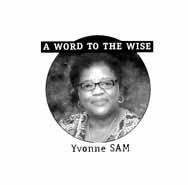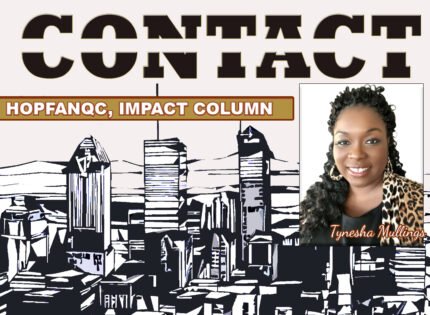Black People: When representing becomes misrepresentation…

How often have we been commanded by someone or some entity with the words, “Black folks represent.”
I don’t know about you, but this writer is oh so tired of this calling to arms for us to represent. Sometimes I just want to be me. I don’t want to represent all Black women, nor do I know how.
Why is it that Black people have to be the spokespersons or standard-bearers for all things Black? I never hear Caucasians, Latinos, Asians or other ethnicities so often being held to this concept of being, or acting a certain way, to represent their race or culture. And what makes it more controversial is that this ‘call’ is mainly made by Blacks to Blacks. I think it’s time for us to re-think this phenomenon.
What exactly does ‘represent’ mean? Does it mean that as Black women we need to be fiery, neck-rolling, snap-talking sisters, or does it mean we are supposed to be the nurturers and virtuous caretakers for the rest of society? No doubt like many Black women, I have often found myself in situations where colleagues approached me with problems or issues that affect everyone in the department.
What happens is this: the rest of the group comes to us (usually the only Black woman) and asks us to go to management about that issue. The reasons typically proffered have to do with our ‘strong personality’ or, plainly put, our ability to “tell it like it is.”
Why is it that we always get pushed to the forefront to do the dirty work? Truthfully told, I think it is because society has labeled us as the people who can best be confrontational. It’s a backhanded compliment and assumption based on our so-called skill at ‘representing.’ Did anyone from the other side ever stop to think that maybe we are just as mortified or intimidated as they are? Not hardly.
The other side of the coin is when our Black peers demand we ‘represent. This often means they want us to act, dress, or behave in a certain (i.e. stereotypical) way. Whether it is in our profession, leisure activities, or even in a relationship, we tend to be told to demonstrate our ‘blackness’ in a particular fashion.
Even in our everyday lives, we get admonished with standards of blackness; we are supposed to get down a certain way. We are supposed to enjoy certain foods just because we are Black. Well, what about those of us who prefer caviar to snapper? What about those of us who prefer techno to hip-hop? What about those of us who cannot dance?
Enough of this!
Representing becomes misrepresentation when we don’t celebrate the wonderful diversity of Black culture. It becomes misrepresentation when it stifles our creativity and individuality and holds us to some false set of values or behaviors that others have arbitrarily assigned as ‘black.’
It diminishes us, and is a slap in the face of our humanity. Don’t get me wrong, we are (and can be) many of those stereotypes; but we are also much, much more than that. And it’s up to us to decide how, when and why we incorporate and celebrate the gamut of who we are.
So represent it all. Do not limit yourself, let us represent the fullness of us organically, and not because someone has told us what that representation should look, feel or sound like.
I represent me. What about you?















